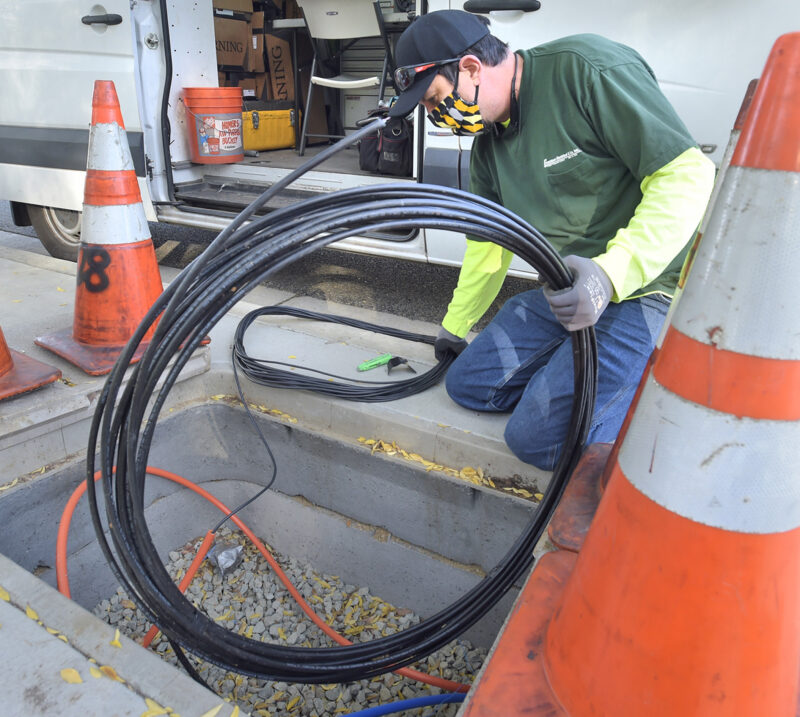Final steps to bring California Institute of the Arts faster internet on campus while saving on monthly costs were completed Friday as part of a cooperative effort with the city of Santa Clarita.
Crew members spliced fiber-optic cables from the Valencia campus on McBean Parkway to Santa Clarita City Hall, located just 2 miles northeast of the institution.
“Through the splicing and connecting to City Hall, CalArts will have the benefit of more bandwidth and with more bandwidth, you can be more productive,” said Cesar Romo, a traffic signal system administrator with the city.

Through the connection to City Hall, CalArts will be able to expand its technology infrastructure and have access to hundreds of new internet service providers currently not offering service in Santa Clarita, according to Romo.
City Hall’s access to those internet providers comes after Santa Clarita City Council members voted last year to lease two dark fiber strands to downtown Los Angeles, which created a physical connection from Santa Clarita to L.A., ultimately connecting the city to multiple internet service providers previously not accessible locally. From that agreement, CalArts and internet service providers in L.A. will connect through the city.
“CalArts is the first organization to leverage the City’s fiber infrastructure in this way,” said Benny Ives, a city technology services manager.
The agreement will also generate $18,000 per year in revenue for the city. One-time construction costs to deploy fiber from McBean Parkway to CalArts’ data center will cost $27,400 and will be split equally with a one-time cost of $13,700 for the city, according to a council agenda report.

Despite safety measures reducing in-person learning due to the COVID-19 pandemic, CalArts officials said the new, fiber-optic connectivity will benefit productivity for students, staff and faculty.
“We are deeply excited about the opportunities this opens for our campus community,” said Allan Chen, chief technology officer at CalArts, in a prepared statement. “Internet connectivity, even before the work- and learn-from-home environment we find ourselves in today, is critical to the productivity of the institute. This new project provides a direct link to the largest hub of connectivity on the West Coast, opening new doors that will improve redundancy, performance, and capacity. The successful culmination of this multiyear effort is also indicative of the collaborative spirit of the project.”








